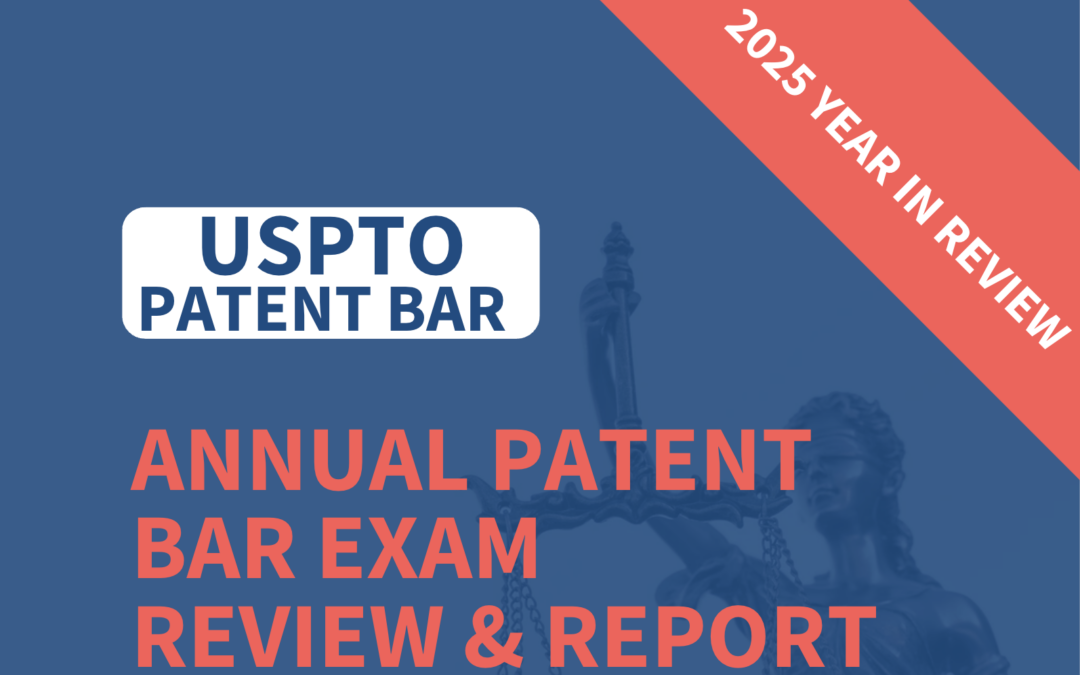In today’s increasingly interconnected and competitive global economy, the threat of economic espionage looms large. Intellectual property theft can have far-reaching consequences, impacting not only individual companies but also entire industries and nations. This article delves into the world of economic espionage, with a particular focus on patents and their role in this clandestine activity. Additionally, it explores the Manual of Patent Examining Procedure (MPEP) and the Patent Bar’s efforts to combat economic espionage. By examining real-life case studies, we can glean valuable insights into this pervasive issue and learn from past mistakes.
Understanding Economic Espionage
Definition and Overview of Economic Espionage
To better comprehend economic espionage, it is crucial to first define its scope and understand its underlying principles. Economic espionage refers to the illicit acquisition and dissemination of proprietary trade secrets and intellectual property for personal or corporate gain. In essence, it involves the theft of intangible assets that provide a competitive advantage in the marketplace.
Economic espionage can take various forms, including cyberattacks, insider theft, and covert operations. The perpetrators can be individuals, organizations, or even nation-states seeking to gain an unfair advantage in the global economy. The motivations behind economic espionage can range from financial gain to political influence, making it a complex and multifaceted issue.
The impact of economic espionage on companies and industries cannot be overstated. Not only does it undermine innovation and stifles creativity, but it also threatens job security, market competitiveness, and national security. Companies invest significant resources in research and development to create innovative products and services, and economic espionage undermines their efforts by allowing competitors to gain access to their valuable intellectual property without investing the same time and resources.
Recognizing the severity of this issue, governments and law enforcement agencies worldwide have enacted legislation and implemented strategies to combat economic espionage effectively. These measures aim to protect intellectual property rights, enhance cybersecurity, and strengthen international cooperation to prevent and punish economic espionage activities.
The Impact of Economic Espionage on the Global Economy
The consequences of economic espionage extend far beyond individual organizations; they can directly affect the global economy as well. When valuable intellectual property is stolen and utilized by competitors or foreign entities, it erodes the market position of legitimate innovators and disrupts fair competition. This not only hampers economic growth but also dampens investor confidence and discourages future research and development efforts.
Moreover, economic espionage can lead to the loss of jobs and the decline of industries. When companies are unable to protect their trade secrets and intellectual property, they may face significant financial losses, which can result in downsizing, layoffs, and even bankruptcy. This not only affects the employees directly involved but also has a ripple effect on the broader economy.
Furthermore, economic espionage undermines trust and collaboration among countries and hampers international trade. When companies fear that their intellectual property may be stolen, they may hesitate to engage in cross-border collaborations or share knowledge and technology with foreign partners. This lack of cooperation hinders global economic integration and slows down technological advancements that can benefit societies worldwide.
In conclusion, economic espionage poses a significant threat to companies, industries, and the global economy as a whole. It is essential for governments, organizations, and individuals to remain vigilant and take proactive measures to protect intellectual property rights and combat economic espionage effectively. By doing so, we can foster a climate of innovation, fair competition, and sustainable economic growth.
The Role of Patents in Economic Espionage
The Basics of Patent Law
Patents are a vital tool for protecting inventions and encouraging innovation. They grant inventors exclusive rights to their creations for a limited period, providing a valuable incentive to invest time, resources, and expertise into developing groundbreaking ideas. Patents cover a wide range of fields, including technology, medicine, and design, and serve as a powerful instrument in stimulating economic progress by promoting the disclosure of new knowledge.
When an inventor obtains a patent, they have the legal authority to prevent others from making, using, selling, or importing their invention without their permission. This exclusivity allows inventors to recoup their investment and profit from their creations, which in turn incentivizes further research and development.
Patent law is complex and varies across different jurisdictions. In the United States, for example, the U.S. Patent and Trademark Office (USPTO) is responsible for granting patents and ensuring their enforcement. To be eligible for a patent, an invention must meet certain criteria, including being novel, non-obvious, and useful. The patent application process involves submitting detailed descriptions, drawings, and claims that define the scope of the invention.
How Patents Can Be Exploited in Economic Espionage
Unfortunately, the very system designed to foster innovation and protect inventors’ rights can become a target for economic espionage. In some instances, individuals or organizations seek to steal patented technologies to gain an unfair advantage in the market or to reverse engineer valuable products. This form of theft undermines the entire patent system’s integrity and poses a significant threat to inventors and innovators worldwide.
Economic espionage involving patents can take various forms. One common method is through cyberattacks and hacking, where sophisticated hackers target companies or inventors’ databases to gain unauthorized access to valuable patent information. Once obtained, this stolen intellectual property can be sold or used by competitors to develop similar products without investing in research and development.
Another method of exploiting patents in economic espionage is through insider threats. Disgruntled employees or individuals with access to confidential information may leak or sell patented technologies to rival companies or foreign entities. This type of espionage not only causes financial harm to the inventor or company but also compromises national security and economic competitiveness.
Furthermore, economic espionage involving patents can occur through corporate espionage, where rival companies engage in unethical or illegal practices to obtain patented technologies. This may involve bribing employees, infiltrating research facilities, or engaging in covert surveillance to gather valuable intellectual property.
The consequences of economic espionage on the patent system are far-reaching. Inventors may lose their competitive advantage, suffer financial losses, and have their hard work and innovation undermined. Moreover, the overall economy can be negatively impacted as stolen technologies stifle genuine innovation and discourage investment in research and development.
To combat economic espionage, governments and organizations around the world have implemented various measures. These include enhancing cybersecurity protocols, increasing penalties for intellectual property theft, and promoting international cooperation to address cross-border economic espionage cases.
In conclusion, while patents play a crucial role in fostering innovation and protecting inventors’ rights, they can also become a target for economic espionage. The theft of patented technologies undermines the integrity of the patent system and poses significant threats to inventors, companies, and national economies. It is essential for governments, organizations, and individuals to work together to prevent and combat economic espionage, ensuring a fair and secure environment for innovation and economic progress.
The Manual of Patent Examining Procedure (MPEP)
An Introduction to the MPEP
The Manual of Patent Examining Procedure (MPEP) is a comprehensive guidebook used by patent examiners at the United States Patent and Trademark Office (USPTO). This invaluable resource outlines the rules and procedures governing the examination of patent applications. It provides guidance on issues such as patentability determinations, examination practices, and legal requirements, ensuring the consistent application of patent law.
Within the MPEP, patent examiners can find detailed instructions on how to evaluate patent applications and determine their eligibility for patent protection. This includes guidelines on the examination process, including the various stages an application goes through, from initial filing to final determination. The MPEP also provides examiners with information on the different types of patents, such as utility patents, design patents, and plant patents, and the specific requirements for each.
Furthermore, the MPEP serves as a valuable resource for patent attorneys, inventors, and other stakeholders in the patent system. It provides a clear understanding of the examination process, helping applicants navigate the complex world of patent law. By following the guidelines outlined in the MPEP, applicants can increase their chances of securing patent protection for their inventions.
The MPEP’s Role in Preventing Economic Espionage
By regulating the patent examination process, the MPEP plays a critical role in preventing economic espionage. The stringent criteria and rigorous evaluation procedures outlined in the MPEP ensure that patents are granted only to legitimately qualified inventions. This minimizes the risk of fraudulent applications and reduces opportunities for economic spies to exploit the patent system.
Economic espionage, the theft of intellectual property for economic gain, poses a significant threat to innovation and economic growth. With the rapid advancement of technology and globalization, protecting intellectual property has become increasingly important. The MPEP acts as a safeguard against economic espionage by setting high standards for patentability and examination.
The MPEP requires patent examiners to thoroughly review patent applications and conduct extensive searches to determine if an invention meets the legal requirements for patent protection. This includes evaluating the novelty, non-obviousness, and usefulness of the invention. By adhering to these rigorous examination practices, patent examiners can identify and reject applications that do not meet the necessary criteria, preventing the granting of patents to inventions that are not truly innovative.
In addition, the MPEP provides guidelines for examiners to identify potential instances of fraud or deception in patent applications. This includes detecting attempts to misrepresent or manipulate the invention’s characteristics, purpose, or prior art. By promoting transparency and integrity in the patent examination process, the MPEP helps to maintain the credibility and reliability of the patent system.
Moreover, the MPEP serves as a valuable resource for patent examiners in identifying and addressing emerging issues related to economic espionage. It provides updates and guidance on new technologies, legal developments, and international intellectual property standards. This enables patent examiners to stay informed and adapt their examination practices to effectively combat evolving threats in the field of intellectual property.
In conclusion, the MPEP is an essential tool in the patent examination process, providing patent examiners with the necessary guidance and instructions to ensure the consistent and fair application of patent law. Its role in preventing economic espionage cannot be overstated, as it sets high standards for patentability and examination, helping to safeguard innovation and protect intellectual property rights.
The Patent Bar and Its Significance
What is the Patent Bar?
The Patent Bar consists of registered patent practitioners who are qualified to represent inventors and applicants before the USPTO. These individuals possess specialized knowledge of patent law and have passed the Patent Bar Examination, which tests their understanding of the intricacies of patent prosecution. The Patent Bar plays a crucial role in maintaining the integrity of the patent system and preventing economic espionage.
The Patent Bar’s Efforts to Combat Economic Espionage
Recognizing the importance of safeguarding intellectual property, the Patent Bar has been at the forefront of efforts to combat economic espionage. These professionals work tirelessly to ensure that patent applications are thorough, accurate, and comply with all legal requirements. By carefully scrutinizing patent filings, the Patent Bar helps to identify potential cases of economic espionage and takes necessary action to protect inventors’ rights and preserve the integrity of the patent system.
Case Studies of Economic Espionage in the Patent World
Notable Instances of Patent-Related Economic Espionage
Throughout history, numerous cases have highlighted the devastating impact of economic espionage on the patent world. From high-profile incidents involving multinational corporations to lesser-known cases with local repercussions, these instances serve as cautionary tales that underscore the importance of robust protection mechanisms and vigilance against trade secret theft.
Lessons Learned from Past Cases
Studying past cases of economic espionage yields valuable insights and lessons for individuals and organizations seeking to safeguard their intellectual property. By understanding the techniques employed by economic spies, recognizing patterns of theft, and implementing robust security measures, one can mitigate the risk of becoming a victim of economic espionage. Furthermore, collaboration between governments, law enforcement agencies, and industry stakeholders is crucial to effectively combat this ever-evolving threat.
By exploring the intricate web of economic espionage, the role of patents, and the significance of the MPEP and the Patent Bar, we gain a deeper understanding of the challenges faced by innovators and inventors. By remaining vigilant and proactive, we can collectively strive to protect intellectual property, promote innovation, and foster a fair and competitive global economy.











